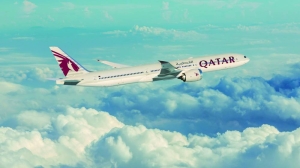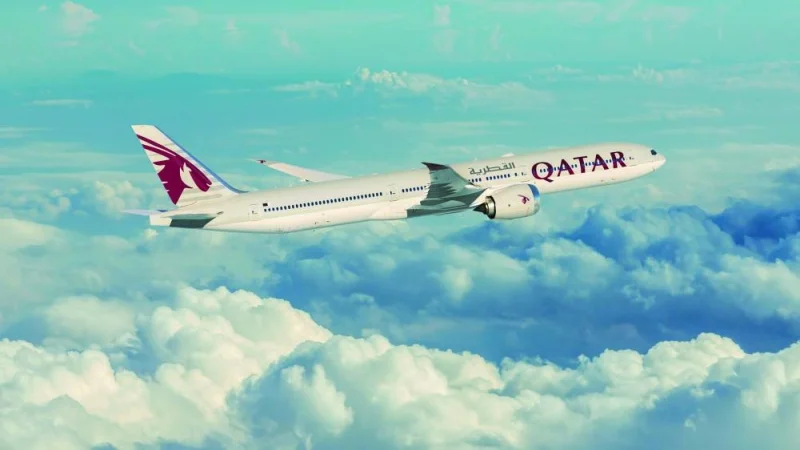Qatar Airways collaborates with industry stakeholders to promote use of lower emission fuels


Qatar Airways Group is committed to working in collaboration with industry stakeholders to advance the use of SAF and LCAF certified under a robust sustainability-criteria recognised by ICAO, or the member states
Qatar Airways Group said it is committed to working in collaboration with industry stakeholders to advance the use of SAF and low carbon aviation fuels (LCAF) certified under a robust sustainability-criteria recognised by ICAO or the member states.
Most recently, Qatar Airways joined the First Movers Coalition (FMC) of the World Economic Forum.
In 2023, in-line with its commitments, the Group successfully completed the uptake of 3.9mn litres of neat SAF, with a 94.4% lower emission in the life-cycle compared to fossil jet fuel.
This SAF represented more than 5% of total fuel uplifted by Qatar Airways for its operations in Amsterdam, Netherlands, over the course of the 2023-24 fiscal year.
The Group continues to expand the scope of its voluntary carbon offsetting programme for passengers as well as corporate and cargo customers.
Since the programme launched in November 2020, Qatar Airways’ customers have contributed to reducing or avoiding carbon dioxide emissions by supporting high-quality and accredited offsetting projects for renewable energy located in Africa and Asia.
In addition to its customers’ contributions, the Group complies with the monitoring and reporting of the EU and UK emissions trading schemes.
The Group also complies with the State of Qatar’s requirements, which is part of the voluntary phase of ICAO’s Carbon Offsetting and Reduction Scheme for International Aviation (CORSIA).
CORSIA is a global scheme, which will result in greater levels of CO2 mitigation in international aviation than could be achieved through domestic policy measures.
It is forecast that CORSIA will stabilise net CO2 emissions from international aviation at about 600mn tonnes of CO2, according to the global body of airlines, IATA.
IATA estimates that, without CORSIA, the CO2 footprint of international aviation would increase from slightly over 600mn tonnes of CO2 in 2019 to almost 900mn tonnes of CO2 by 2035.
In its annual report, Qatar Airways said it remains committed to demonstrating leadership in protecting the environment whilst exploring new initiatives that minimise environmental impact and cement a path for a sustainable future.
From investing in the most advanced aircraft technology, to minimising single-use plastics and conserving water and energy, the environmental efforts of the group span every aspect of its network operations, establishing a well-balanced approach and a long-term strategy to support environmental sustainability.
The group actively collaborates with industry stakeholders in leading global efforts to reduce carbon dioxide emissions and address climate change.
Despite the challenging task to decarbonise the aviation sector, the Group is taking action to achieve its commitment of net zero emissions by 2050 in accordance with the Four Pillars Strategy adopted by IATA and ICAO.
The group continues to invest in the most advanced aircraft technology and new generation engines, which position the group at the top of the industry in terms of fleet modernisation and its positive impact on operational efficiency.
Maintaining an advanced fleet also contributes towards enhancing Qatar Airways’ capacity to drive future growth while reducing the overall fuel consumption and carbon emissions per passenger and cargo transported, the annual report noted.







